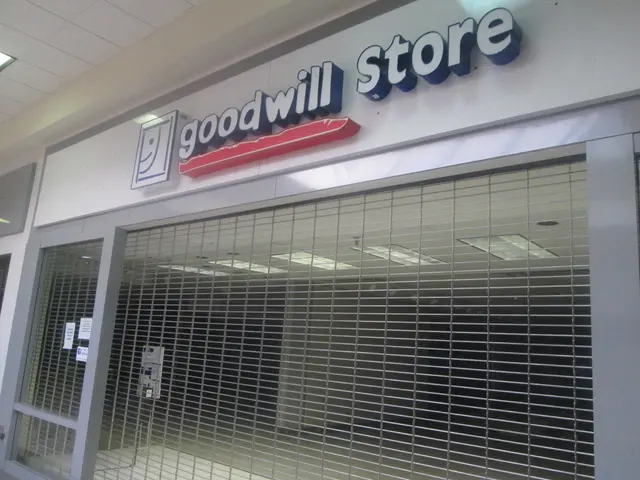Attempted Utilization of Orb Facial Scanner, Backed by Sam Altman. Humanity Verification Unsuccessful
Dealing with the pesky issue of distinguishing human from bot online, a startup backed by none other than Sam Altman, has an innovative solution - an Orb. This high-tech device, part of Tools for Humanity, aims to provide a more effective identity verification method in our AI-driven world.
During a test, my attempt to be verified as "unique human" by the Orb was unsuccessful, but it turns out my blue-light blocking contacts might have tipped the device off. Tiago Sada, the chief product officer at Tools for Humanity, reassured me, stating it was a good thing the Orb rejected me.
The world is crawling with bots on platforms ranging from ticket sales websites to dating apps, and AI systems have grown sophisticated enough to easily bypass traditional CAPTCHA systems. Moreover, armies of bots can cause trouble by spreading harassment or disinformation campaigns on social media, while AI scams are already costly for victims.
Convincing people to let an Orb scan their face to confirm their humanity and create bot-free online spaces could be a hard sell. Objecting to this tech extension, several places have banned the project over privacy and other concerns, including the United Kingdom and Hong Kong.
But Sada firmly believes the need for such a service is evident. "Every single website, whether it's finance, social media, commerce, whatever, we think of proof of human is super relevant," he said.
The Inside Scoop on the Orb
When you scan your face with the Orb, advanced technology snaps images of your eyes and face to analyze things like dimension and how they react to light. If the Orb confirms your "humanness," it generates a unique code, or "WorldID," which serves as a digital passport to verify your identity across various online services.
Sada envisions WorldID being used in scenarios such as a bank confirming a customer's identity before disclosing financial information, using WorldID instead of security questions, potentially making such processes more secure.
Although there are currently few practical use cases for WorldID, it can be used in a limited manner on some platforms like Reddit and Shopify, enabling access to human-only subreddits or retail deals. More than 12 million people have already verified their identity using Orbs in over 20 countries.
Tools for Humanity plans to roll out a service this year to deliver Orbs directly to people's homes for easier verification, starting in Latin America. As of now, the Orb is temporarily unavailable in the United States while the technology is being updated.
Safety Matters
Built for the "World" network, an open-source platform serving as a repository for "verified" humans, the Orb faces scrutiny from privacy regulators in Europe and elsewhere given its collection of sensitive biometric data. However, Tools for Humanity claims that photos taken by the Orb are sent to users' phones along with their WorldID and are automatically deleted from the device, so no biometric data is retained.
Unlike other cryptocurrency projects, Worldcoin has generated extra attention due to its offering of cryptocurrency in exchange for using the technology, sparking concerns that it could encourage users to overlook potential privacy risks. The project's future expansion beyond cryptocurrency remains uncertain, but Tools for Humanity is exploring additional revenue streams.
Privacy concerns aside, the Orb promises an innovative approach to identity verification and combating AI-driven impersonation risks, balancing innovation with safeguards to mitigate potential misuse or breaches.
- In 2023, Tools for Humanity aims to deliver Orbs directly to homes in Latin America for easier identity verification, using advanced technology to analyze facial dimensions and reaction to light.
- To combat AI-driven impersonation risks, the Orb, a tech device developed by Sam Altman's startup, generates a unique code, or "WorldID," serving as a digital passport for identity verification across various online services.
- According to Tiago Sada, the chief product officer at Tools for Humanity, WorldID can be used in scenarios like banking or social media, potentially making user verification processes more secure.
- The Orb technology faces scrutiny due to its collection of sensitive biometric data, but Tools for Humanity claims that photos taken by the Orb are sent to users' phones along with their WorldID and are automatically deleted from the device.
- Some concerns have been raised about the Orb's potential privacy risks due to its offering of cryptocurrency in exchange for using the technology, but Tools for Humanity is exploring additional revenue streams to expand its services beyond cryptocurrency.







